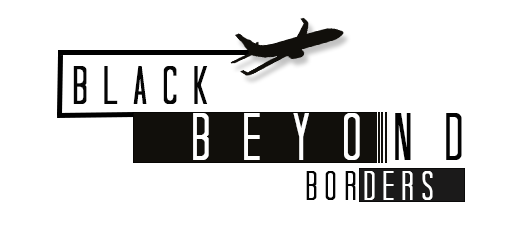Being African-American in Africa
Greg Barber is a junior psychology major with a minor in African-American Studies from Atlanta, Georgia. This semester he is studying abroad with SIT (School of International Training) as the Robert Kantor Scholar in the east African countries of Rwanda and Uganda where he is learning about genocide restoration and peace-building. He will be researching what positive coping strategies the orphans of the 1994 genocide against Tustis put in place to not only heal from the traumatic impact of the genocide, but to also become progressive members of the Rwandan society.
Ever since I could remember, I have always had a love for Africa. Despite American media outlets depicting Africa as an unsafe continent full of starving kids and families living in huts, I knew I had to go to see it for myself. Previously, I had the opportunity to visit Europe, South America, and even Australia. However, with the current treatment of blacks in America, I felt drawn to Africa and her wonders.
The journey began first by getting off the plane from a 23-hour ride. The first thing I did was touch the ground – I was overwhelmed to feel the warm, sturdy and foundational African soil. I did not just come to a continent or country that celebrated blackness, but to a place where people felt no discomfort or anxiety with blackness. I was able to experience a new country without any discrimination and just be myself.
To give a bit of history, in 1994 the small east African country of Rwanda experienced genocide unlike the Holocaust, Cambodia or any other genocide in history. The then-government concocted a plot to systematically eliminate the Tutsi ethnicity not by gas chambers or concentration camps, but by instilling fear in the Hutu majority that if they do not kill their Tutsis neighbors, they will continue to oppress them. Nearly one million people were killed within 100 days, leaving families torn apart and a country brutally scarred by the residue of colonization. However, Rwanda has since been able to heal most of it scars by becoming the 3rd safest country in the world, rank within the top 10 fastest growing economy, create a singular identity among its citizens and reconcile the once perpetrators and survivors into a solid, cohesive unit.
Not to undermine its impressive achievements, unfortunately Rwanda has not put a focus on the psychological trauma sustained by the 1994 genocide against Tutsis and how to heal their citizens. Through my own experience, I am able to personally identify with deep pain. When I was sixteen, my mother died from systematic lupus erythematous and it was single-handedly, the hardest obstacle I have ever been through. Similarly in Rwanda, over 400,000 kids lost either their mother, father or both parents. This inspired me to come to Rwanda and research what positive coping strategies these teenagers who are now adults used to not only heal from the trauma, but become progressive and positive members of the Rwandan society.
Despite Rwanda’s history, I have noticed that the people here are happy – genuinely, unapologetically happy. Even though they are not privileged to have running water or stable electricity in their homes, but they have each other. Their infrastructure might not be as superior to America nor their transit system, but they do not complain and wallow in self-pity – they are resilient and put value in immaterial things like family time and spirituality, not in obtaining money, or accolades or opportunities. They are thankful, humbled and constantly living in the moment; there is no focus on a beginning or end, but just the time in between to fellowship and enjoy the company of one another. It’s beautiful. In America, I was always trying to gain: gain more opportunities, more accolades and more material things to show how successful I am, but I was incognizant that I was losing one important thing: time. Time to be thankful for what I have achieved and spend valuable moments with the ones I love and who love me. Rwanda has allowed for me to not plan life anymore, just be available for it.
When I speak the native language of Kinyarwanda, the citizens often chuckle but are excited to see that I am interested in learning their language. They ask “What country are you from?” and with hesitation, I say “America”. However, no matter where I am from, in their eyes I am African, I am one of their brothers overseas. I was even given a Kinyarwanda name – Mugabo – which means brave, strong and powerful. I came to Rwanda seeking to help and learn more about their people, but in actuality, I have been able to learn more about myself and my purpose. I cannot even articulate how excited I am for my future here in Africa.
Bless Be The Name of The Lord
